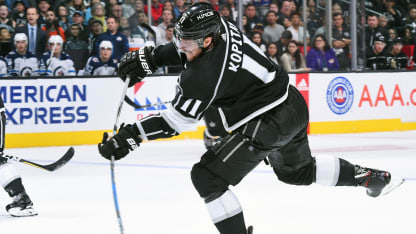Ilya Kovalchuk signed a three-year, $18.75 million contract with the Kings on July 1 after playing the past five seasons for SKA St. Petersburg in the Kontinental Hockey League.
When he retired from the NHL after the 2012-13 season, Kovalchuk was fourth in the NHL with 816 points (417 goals, 399 assists) in 816 games, behind Jarome Iginla (839), Martin St. Louis (852) and Joe Thornton (939) since his rookie season in 2001-02.
The KHL's translation factor helps indicate what to expect from Kovalchuk. Translation factors are based on how players from other leagues have performed in the NHL, in this case after coming from the KHL or its predecessor, the Russian Super League. They are calculated by taking a player's points-per-game average in the NHL in one season and dividing it by how that player performed in the other league in the preceding season. Based on the 54 players to move from the KHL to the NHL since 2005-06 (minimum 20 games in each league, but not including 2012-13, when there was an unusually high number of NHL players in the KHL), the average player retained 72.7 percent of his scoring when going to the NHL.
With SKA St. Petersburg, Kovalchuk had 285 points (120 goals, 165 assists) in 262 games. Multiplying his KHL scoring rate (1.09 points per game) by the league's translation factor of 0.727, Kovalchuk's estimated output this season in the NHL would be 0.792 points per game, or 65 points in 82 games.

